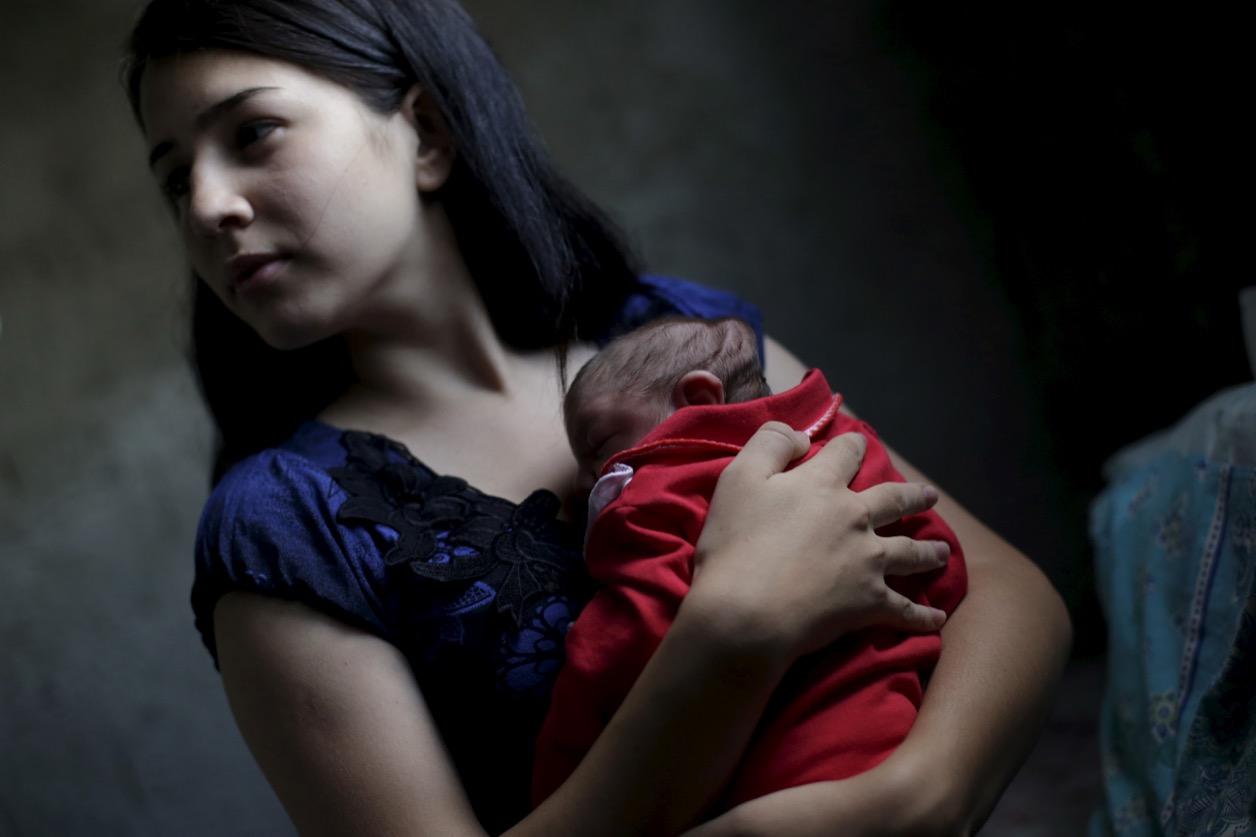A new bill aims to make Brazil’s abortion law even tougher
Ianka Mikaelle Barbosa, 18, with Sophia, 18 days old, who was born with microcephaly, at her home in Campina Grande, Brazil.
The rise of Zika and its troubling possible link to head deformities in babies have certainly reignited the debate over Brazil’s abortion law.
But while the crisis is spurring women’s rights activists to push for allowing abortion in cases of the birth defect called microcephaly, it’s also driven at least one Brazilian lawmaker in the opposite direction.
A recent bill introduced by Anderson Ferreira, a conservative congressman from Brazil’s northeast, seeks to actually toughen the penalty for women who abort a fetus believed to have microcephaly or any other abnormality.
Abortion is a crime in Brazil currently, with three exceptions: if it’s necessary to save the mother’s life; to end a pregnancy from rape; or if the fetus is developing without main parts of the skull or brain, a rare condition known as anencephaly. (A separate bill aims to make the rape exception more stringent.)
Women who undergo illegal abortions can be punished with one to three years’ imprisonment. The person who administers the procedure may be sentenced to one to four years in prison.
Ferreira’s bill would raise the maximum penalties to four-and-a-half years for the mother and six years for the person performing the abortion in cases of microcephaly or other birth defects.
Mauricio Santoro, a political science professor at Rio de Janeiro State University, said he doesn’t expect the bill to pass. But Brazil’s current political instability means that evangelicals like Ferreira could become important allies to potential presidential candidates.
“Evangelicals are a very powerful bloc in Brazil,” Santoro said. “Anyone who wants to become president of Brazil these days will seek the support of the evangelicals.”
President Dilma Rousseff’s opponents are trying to impeach her, and aspiring successors are already lining up to face off in an election that could come as soon as later this year. Among those are Marina Silva, an evangelical who came in third in the 2014 election, and Jair Bolsonaro, an anti-abortion campaigner whom the online publication The Intercept described as “The most misogynistic, hateful elected official in the democratic world.”
Women’s rights activists say the country’s strict abortion laws impact poor women far more than middle-class and wealthy women. Women with means are easily able to find discreet, safe abortion clinics, while poorer women have to seek out more dangerous, clandestine ways to end their pregnancies, they say.
“If you asked me where you can get an abortion nearby, I could find you a name of someone within five minutes and it would probably be in the middle of Leblon,” said Livia Magalhaes, a feminist and activist, referring to one of the Rio de Janeiro’s most exclusive neighborhoods.
Though there’s little good data available, Zika and microcephaly also seem to be disproportionately impacting poorer Brazilians. That could be because the wealthier ones are more able to protect themselves against mosquitoes by using air conditioning, buying repellent and installing screens on their doors and windows.
But Santoro thinks there’s another reason.
“My guess is that we already have middle-class women getting abortions because of microcephaly,” he said. “Because when you see the stories about babies with microcephaly, they are always about poor women. So what’s happening? Why don’t we see that with women who are lawyers or engineers? Because when they get the diagnosis [of microcephaly] they’re getting abortions.”
